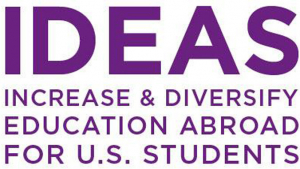
Kapiʻolani Community College has been selected as one of 44 colleges and universities to receive a federal grant from the U.S. Department of State Bureau of Educational and Cultural Affairs. The project, Militourism and Indigenous Identities in Hawaiʻi and Okinawa, is funded by a two-year $33,000 grant through the State Department’s Increase & Diversify Education Abroad for U.S. Students (IDEAS) program, and will promote study abroad and U.S. foreign policy interests through a week-long summer institute as part of a redesigned Ethnic Studies 101 course.
“I am excited that through this program, our students will have the opportunity to learn more about the similar historical and contemporary issues in Okinawa and Hawaiʻi,” said Chancellor Louise Pagotto. “It affirms our commitment to international education through both the exploration of short-term and virtual cohort-based summer exchanges and the collaboration with our partner institutions in Okinawa.”
This institute incorporates themes of environmental sustainability and economic development anchored in Hawaiʻi and Okinawa’s shared experiences as island-states with Indigenous peoples living in host communities of U.S. military bases established during World War II. As the military and tourism industry became cornerstones of Hawaiʻi and Okinawa’s economies, both depended on promoting the islands’ military and local culture and minimizing conflicts between these two groups.
“This course will provide students with a holistic understanding of global and local issues across the Pacific by examining the impact of militarism and tourism on the people of both Hawaiʻi and Okinawa,” said Kelli Nakamura, project director and associate professor of history. “I am excited by the opportunities our students will have to learn from subject matter experts in Okinawa and Hawaiʻi. I hope this institute will encourage students to participate in study abroad opportunities to learn more about these critical connections.”

This institute explores American and Japanese imperialism and militarism in the Pacific as a reflection of America’s Cold War public diplomacy within a liberal multicultural discourse. Okinawa and Hawaiʻi would be sites of America’s soft diplomacy efforts that witnessed the commercialization of Indigenous peoples and cultures within tourism that disguised conflicts over land, resources and Indigenous rights.
“Through a national pilot program conducted by the Community Colleges for International Development, Kapiʻolani CC conducted a campus-wide baseline survey in fall 2021 to better understand student mobility in study abroad and global internships and is responding to student demands for culturally relevant opportunities appealing to students at an Indigenous-serving institution,” said Brandon Marc Higa, study abroad advisor and director of resource development. “Kapiʻolani CC will increase the number of minority students participating in study abroad through culturally relevant exchanges that are meaningful to their self-exploration and spark a curiosity in global careers.”
Students will attend in-person classes to learn about similarities between Okinawan and Hawaiʻi’s histories as once independent kingdoms whose geopolitical importance eventually led to their role as key hosts of U.S. military bases. The students will then participate in synchronous online sessions by scholars, authors and community activists to learn about Okinawan’s complicated history with Japan and the U.S. military.
The focus will be on gender issues and Indigenous rights in the context of economic, political and social globalization trends within the Asia-Pacific region. Participation in this institute will also foster awareness of the benefits of studying abroad for underrepresented populations in higher education, in support of the State Department and U.S. Department of Education’s Joint Statement of Principles in Support of International Education (PDF).
Since 2016, the IDEAS Program has awarded 145 grants to 139 institutions in 48 states and territories to create, expand and diversify their U.S. study abroad programs in 71 countries across all world regions.
—By Brandon Marc Higa and Kelli Y. Nakamura

